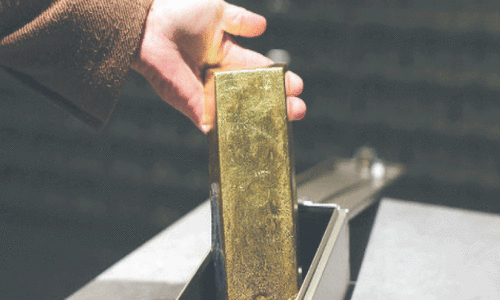PRESIDENT Donald Trump has blinked but refuses to surrender.
The markets that forced him to temporarily freeze higher ‘liberation day’ tariffs but leave the universal 10pc levy in place continue to fret over potential outcomes of his trade war. The dollar has slid, and investors are fleeing the US government bond market, once considered the safest bet in troubled times. The Fed has warned that Mr Trump’s trade policy will keep inflation in the US higher this year, even if it is difficult to predict how the economy will reshape itself afterwards.
Yet Mr Trump warns that higher tariffs will be back if he does not get what he wants from the 75 countries now willing to reset the terms of bilateral trade with America to avoid punitive levies. China, the primary US target of import levies, has reacted aggressively, raising levies on American goods to 125pc. Hours earlier, it had released a white paper on the US tariff war on its goods, saying America will reap what it sows.
However, the US will not be alone in this harvest. Caught in the trade war between the two economic giants are developing countries like Pakistan, which was slotted for a 29pc increase in the levy on its exports to the US. For starters, the pause is only for 90 days. So, one does not know whether Mr Trump will withdraw the higher tariffs or we will secure a deal equal to or better than what our competitors strike.
Even if the US removes the higher import taxes, chances are that the baseline levy will stay — a significant tariff to bear for troubled economies like Pakistan, which ship many of their goods to the US. This raises the question of what Islamabad can offer to the single largest buyer of its goods — after the EU — in terms of tariff reductions.
In the absence of a trade agreement, under WTO rules, Pakistan cannot reduce duty rates for the US without doing the same for other countries. Then, the main objective of reciprocal tariffs for the US is to balance trade deficits with others, meaning that Pakistan would need to displace imports from other countries with US goods worth about $3.3bn or decrease its exports to the US. Is this even possible?
More crucially, China is likely to aggressively displace the exports of other countries to Europe and Britain, which will hit us hard due to the cost differential. Although some analysts argue that the falling global oil prices may make up for the potential loss of export revenues in the event of a global recession, America’s demand reduction due to higher prices, and aggressive Chinese marketing in our traditional markets, well-functioning economies should not strategise their economic future on the basis of hope alone.
Published in Dawn, April 13th, 2025
















































